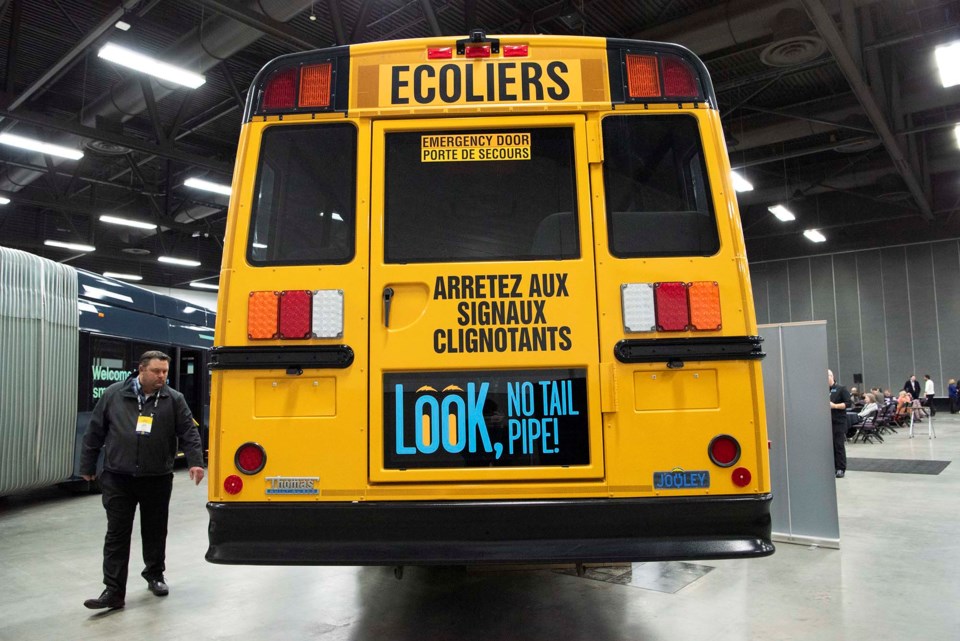Canada could save some $601 million in health care costs over 12 years if it used electric school buses instead of diesel ones, a new report suggests.
The Canadian Electric School Bus Alliance (CESBA) released a report Nov. 14 on accelerating the adoption of electric school buses in Canada. The report was released during the 2023 Electric Mobility Canada Conference in Edmonton.
St. Albert Public Schools plans to field the city’s first electric school buses this January as a part of a five-year pilot project.
This year’s floods and wildfires show that Canada has to take action to decarbonize its economy, said Marie-Ève Labranche of Lion Electric (an electric bus manufacturer), speaking at the conference. That includes transportation, which accounts for some 22 per cent of the nation’s carbon footprint.
“An electric bus can reduce greenhouse gas emissions by 23 tonnes (a year)” compared to a diesel one, Labranche said, and reduces a child’s exposure to air and noise pollution.
The CESBA report estimated that converting all of Canada’s school buses to electric could save Canadians some $601 million in health care costs over 12 years by reducing air pollution.
The report noted electric buses generally cost 80 per cent less to run and 50 per cent less to maintain compared to diesel. They also sit idle for most of the day and the summer, making them ideal as mobile batteries for grid storage or backup power.
Cost problems
Less than two per cent (about 900) of the roughly 50,000 school buses in Canada are electric, with about 70 per cent of the rest being diesel, noted conference speaker Valérie Tremblay of CESBA. As about 45 per cent of those diesel buses are less than five years old, they’ll likely be on the road for years to come.
The report cited cost as a major obstacle to electric bus adoption. Electric buses cost up to 2.5 times as much as diesel ones, and the government grants for such buses are often cumbersome or limited.
A lack of chargers was another problem, the report noted. Prince Edward Island has 12 chargers for its 82 electric school buses, for example, which makes powering them a challenge.
Matt Collins, the manager of engineering services for P.E.I.’s Department of Transportation and Infrastructure and a key figure in that province’s electric school bus rollout, told the conference his department has started installing chargers at the homes of bus drivers as a solution.
“These (drivers) live on their routes,” he noted, and it costs half as much to put a charger on a post in front of a driver’s house than it does to stick them all at a central depot.
“You can charge your whole fleet so much cheaper.”
Policy solutions
The report noted Quebec, P.E.I., and B.C. had the most electric school buses in Canada, with P.E.I. having electrified 25 per cent of its fleet. All three had set targets for electric vehicle adoption, while Quebec and B.C. provided financial support for such buses.
Collins said federal funding had been essential for his province’s electric bus efforts, adding it was unclear if those efforts would continue without it. (A $1.3 million federal grant was an important part of St. Albert’s electric bus pilot.)
The CESBA report called on governments to make all of Canada’s school buses electric by 2040. This would cost billions — about 2.5 times what we would otherwise spend on diesel buses — and involve converting some 2,850 buses a year. The report called for the federal government to create a national mandate for 100 per cent electric bus sales and for federal and provincial governments to fully offset the added capital cost of electric buses.
The CESBA report is available at eschoolbusalliance.ca/recommendations-report.


